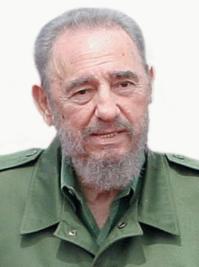The line of those waiting patiently for the demise of Fidel Castro was a long one. For nearly 50 years the queue included foreign exiles, eager businessmen, American politicians, and numerous Cuban dissidents. Yet when the moment finally arrived late last month, it wasn't nearly the historic, providential occasion most had envisioned. Rather than go out with a bang -- which very nearly happened at the height of the Cold War -- Castro chose instead to slip quietly from view, the world's most infamous, and recently bedridden, autocrat leaving his followers with nothing but the vague plea that he wished to fight on as "a soldier of ideas." In many ways it was a strange departure for such a bombastic character, an odd finale for the enigmatic firebrand that became the caricature for a generation of Latin American communists -- a fatigue-clad, cigar-smoking dictator straight out of central casting. What's also strange is that Fidel couldn't be more different than the man to whom he handed over control of his island. His brother Raúl, who was appointed Cuba's President on Sunday, is known for being deliberately understated, a cool, serious bureaucrat who delegates authority and does most of his work behind closed doors. As Fidel's No. 2 for the better part of the last half-century, he knows the inner workings of Cuba better than any of the regime's inner circle, and his message to the National Assembly last month emphasized continuity of leadership. "Fidel is Fidel," he told them, "He is irreplaceable, and the people will continue his work even though he is not physically here."
Cuba: A Cult of Personality Without the Personality

